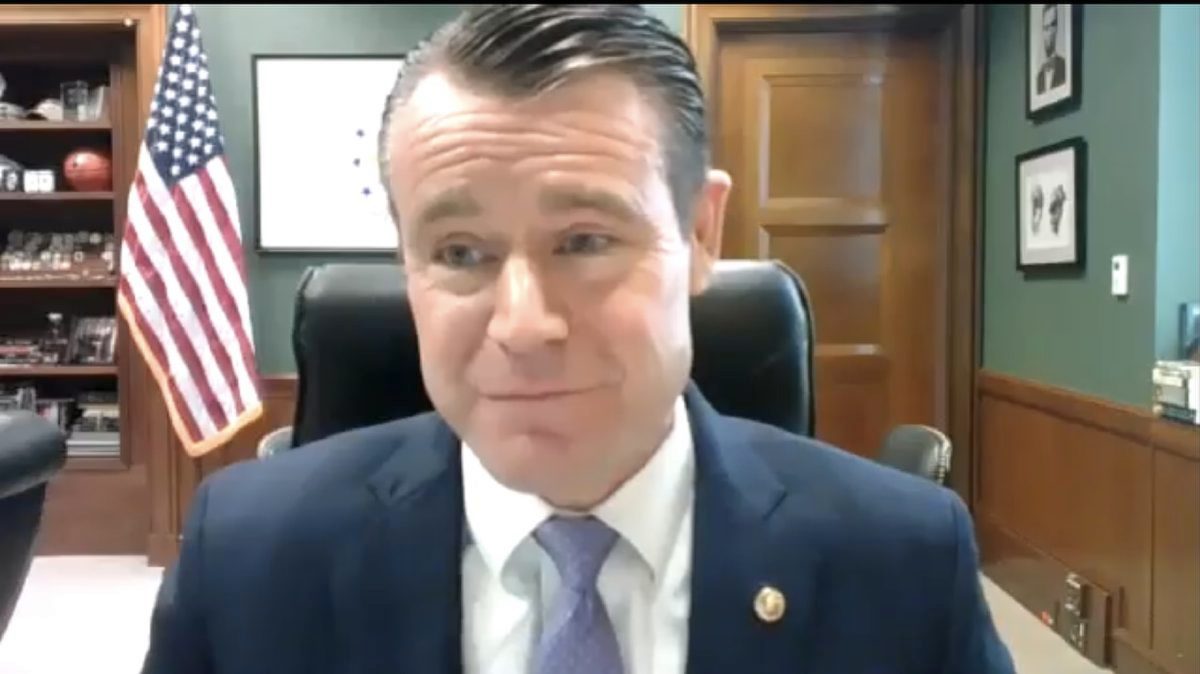A lengthy conversation between Republican Senators and President Joe Biden Monday night at the White House didn’t end in a COVID relief deal, but it was a good starting point, U.S. Sen. Todd Young said.
The Indiana Republican was one of 10 U.S. Senators who met with Biden for two hours Monday night in the Oval Office to discuss the GOP’s slimmed-down COVID-19 relief package proposal. The $618 billion proposal is a fraction of Biden’s $1.9 trillion relief plan.
Biden made it clear he will not spend time in negotiations to win over GOP support, further delaying relief.
“He will not slow down work on this urgent crisis response, and will not settle for a package that fails to meet the moment," White House Press Secretary Jen Psaki said.
[sc:text-divider text-divider-title=”Story continues below gallery” ]
But Young said Tuesday he thinks the conversation set a tone for bipartisanship, despite their disagreements.
"We found some common ground in some areas, and there are other areas that remain open to negotiation. But a tone was set," Young said.
The plans highlight that common ground. Both plans include funding for direct pandemic response and small business relief.
"This is a K-shaped recovery where some people are having the best years they’ve ever had, and others are experiencing the worst days of their life," Young said. "There are a number of businesses — that includes their employees — that need additional assistance … another area of agreement."
Republicans also are tapping into bipartisan urgency to improve the nation’s vaccine distribution and vastly expand virus testing with $160 billion in aid. That is similar to what Biden has proposed. But from there, the two plans drastically diverge.
One of the most hot button issues is the direct stimulus payments. Biden’s plan calls for $1,400 checks for individuals making $75,000 or less. The GOP plan reduced the checks to $1,000, and capped the income at $50,000.
On unemployment benefits, the GOP plan would leave the payments at $300 a week and extend them through June. The enhanced unemployment insurance is set to expire in mid-March.
The GOP also would give nothing to states, while Biden’s plan calls for $350 billion to keep police, fire and other workers on the job.
Young said funding for local and state governments was left out of the GOP’s proposal because there is no need to add "padding" to state budgets for governments to spend money on non-COVID-related expenses. He added that, according to data from J.P. Morgan, half the states brought in more revenue in 2020 than in the previous year, without relief.
"We just signed, on Dec. 27, a $900 billion package, much of which has not been spent yet. And much of the CARES Act from early last year hasn’t been distributed," Young said.
Biden’s plan includes many other items that were scrapped in the GOP’s proposal, including rental assistance and eviction forbearance, an increased child tax credit and an increase in the federal minimum wage to $15 an hour.
While they are important policy issues, adding them to a COVID-19 relief package is stretching beyond what is needed right now, Young said.
"I can’t see that they have much, or anything, to do with COVID," Young said. "Inclusion in a COVID package will inhibit our ability to, in a bipartisan way, come behind the COVID package as we’ve done five times now, and quickly get it out the door."
Young hopes the conversation with Biden will lead to further negotiations and a bipartisan solution, or it won’t and both parties will "go their separate ways," he said.
"Congressional leadership, in contrast to the approach President Biden took, was originally a take-it-or-leave-it approach," Young said. "I hope that changes in the wake of the president’s gestures and his stated desires to work with us."
While Republican senators were pushing for unity, Democrats pushed ahead at the Capitol, unwilling to take too much time in courting GOP support.
House and Senate Democrats released separate budget resolutions Monday, a step toward approving Biden’s package with a reconciliation process that wouldn’t depend on Republican support for passage.
"That is a very slow and tedious process, and it’s not designed to unify," Young said.
Young said Tuesday he is not worried about Hoosiers’ perception of his willingness to work with Democrats and compromise.
"There is a question about whether our party is going to be a party that is grounded in resentment and anxiety and fear. Or instead, that we’re going to be an aspirational party," Young said. "Count me on that end of the party, the ones that propose solutions."
The Associated Press contributed to this report.





